Samsung faces a looming crisis as smartphone sales slump, it is overtaken by SK Hynix in the memory chip sector and its semiconductor division profits fall 40% year-on-year.
12-year reign in smartphone industry shaken
The South Korean tech giant was one of only five global smartphone makers to see shipments decline in the third quarter of this year, losing market share to longtime rival Apple and Chinese rivals.
According to IDC, Samsung's global market share in the third quarter fell from 21% to 18% year-on-year, with the lead over Apple narrowing to just 0.6%.
Analysts estimate operating profit for the company's smartphone division fell as much as 30%.
“Samsung’s smartphone business is in a slump,” said Park Kang-ho, an analyst at Daishin Securities. “The company hoped that foldable phones would give it an edge over Apple, but consumer response has been lukewarm. Now, Chinese companies are ramping up production of flip phones to grab market share.”
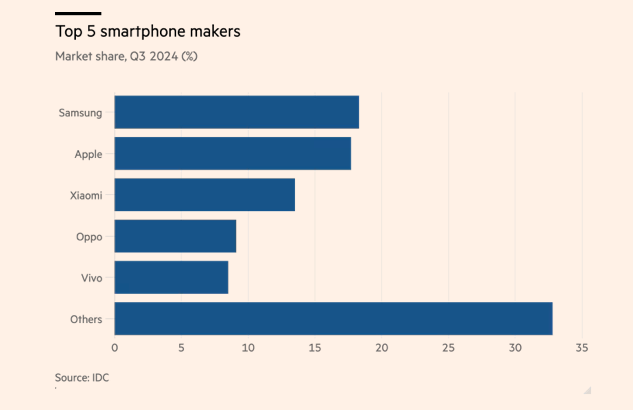
Samsung's 12-year reign as the world's top smartphone maker by sales ended last year, when Apple temporarily took the number one spot, before the South Korean conglomerate regained the top spot in the first quarter of this year.
However, research group TechInsights said that Apple's new artificial intelligence features could help the "apple house" surpass Samsung next year.
Not only that, but mainland rivals are also rising strongly. "Chinese brands have become much more competitive not only in terms of price but also in terms of functionality," said a Samsung employee at the smartphone division.
Samsung was a pioneer in the foldable phone segment, but ceded the top spot earlier this year to Chinese rival Huawei, which had 27.5% of the foldable phone market share in the second quarter, compared to Samsung's 16.4%, according to IDC.
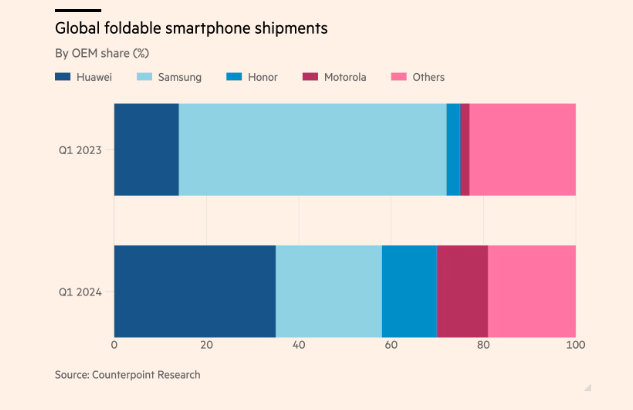
While foldable phones account for just 1.2% of the global smartphone market, they are the fastest growing segment in a relatively stagnant sector.
Falling further behind in semiconductor manufacturing
The Asian company’s smartphone woes come at a crucial time. The company has been hit by a series of setbacks at its semiconductor division, which accounts for 60% of Samsung’s operating profit.
The head of the chip division issued a rare apology this month, after falling further behind smaller cross-town rival SK Hynix in developing advanced memory chips for AI-related hardware.
“Samsung is facing growing structural problems in most of the businesses it once dominated, from chips to smartphones and displays, due to its complacency and bureaucracy,” said Park Ju-geun, head of Seoul-based corporate research group Leaders Index.
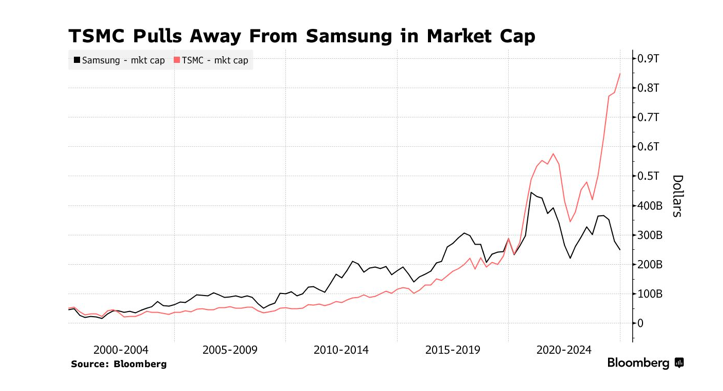
Observers say many of the problems across the conglomerate's various divisions are interrelated, noting that Samsung may be forced to switch to rival Qualcomm's mobile chips in its upcoming Galaxy S25 flagship due to lower-than-expected production of its in-house Exynos processors.
In early October, the company acknowledged delays with its latest generation HBM chips, shortly after SK Hynix said it had begun mass production.
Meanwhile, rival Micron Technology Inc. is also stepping up its efforts in the HBM space and has reported strong demand for its products.
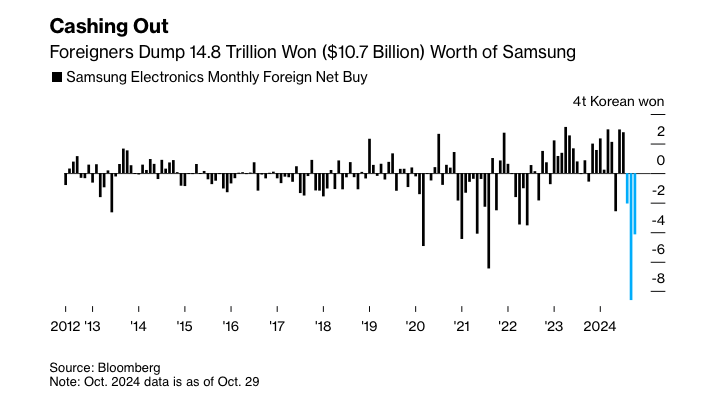
Samsung is “losing its technological leadership in the semiconductor business,” said Young Jae Lee, senior investment director in London for the high dividend team at Pictet Asset Management.
“It is very difficult to regain technological leadership in the short term,” he said, adding that the company has reduced its stake in Samsung.
Samsung has promised an overhaul to regain competitiveness, but fund managers such as Pictet Asset Management and Janus Henderson Investors SP do not believe such a change is imminent.
Foreign investors have dumped about $10.7 billion worth of South Korean company shares on a net basis since late July.
(According to FT, CNBC, Bloomberg)
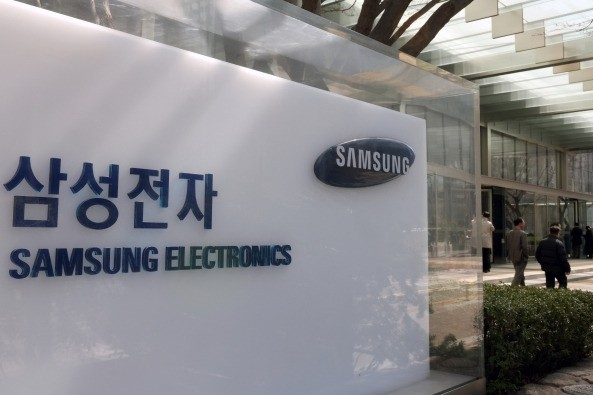
Source: https://vietnamnet.vn/samsung-electronics-dung-truoc-bo-vuc-cuoc-khung-hoang-2337395.html






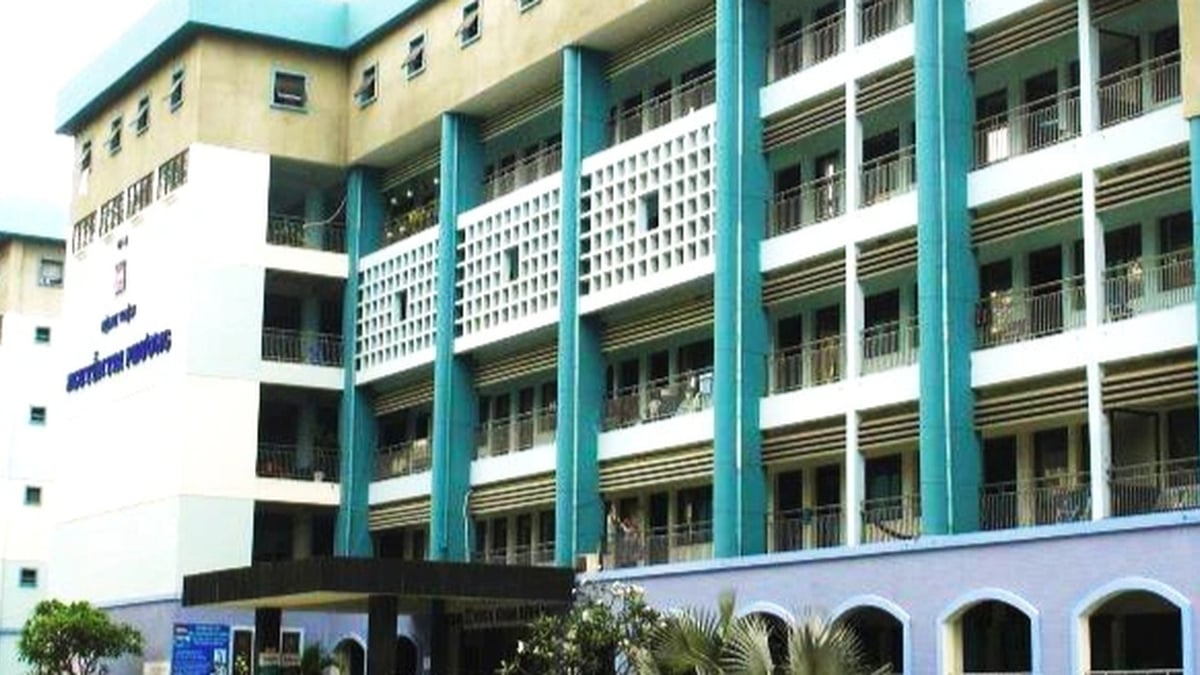

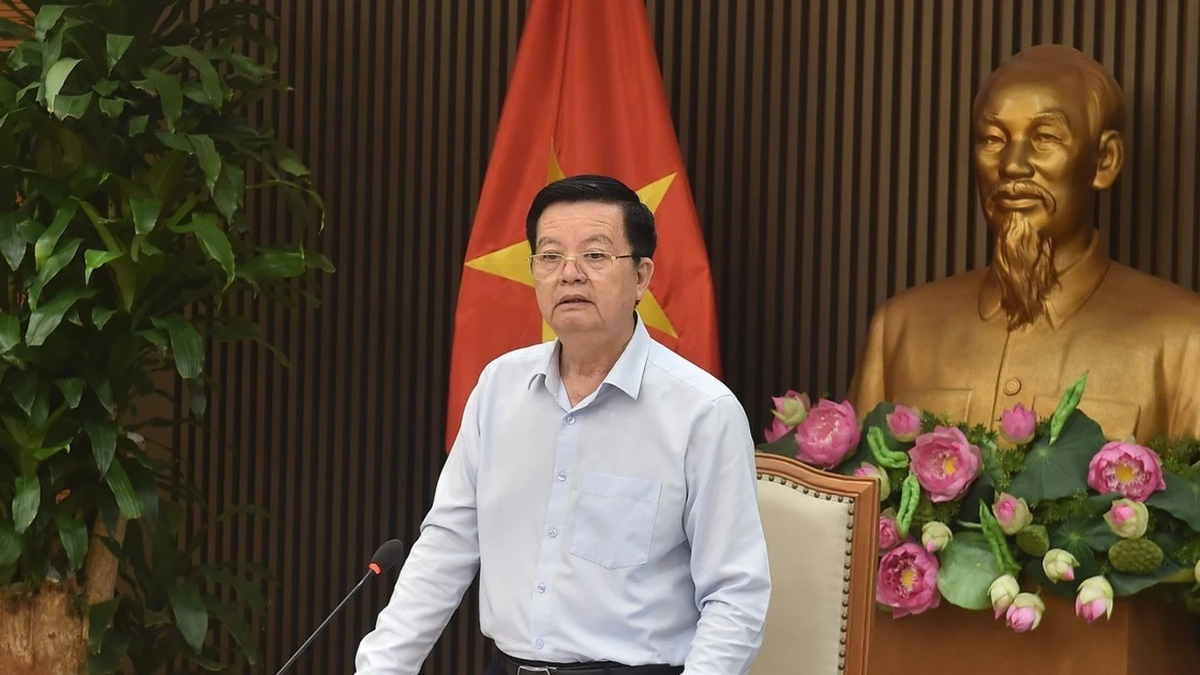


















![[Photo] National Assembly Chairman attends the seminar "Building and operating an international financial center and recommendations for Vietnam"](https://vphoto.vietnam.vn/thumb/1200x675/vietnam/resource/IMAGE/2025/7/28/76393436936e457db31ec84433289f72)






































































Comment (0)